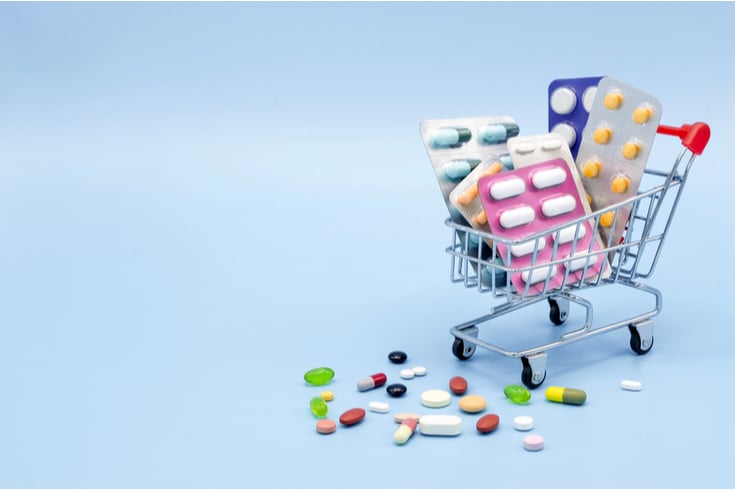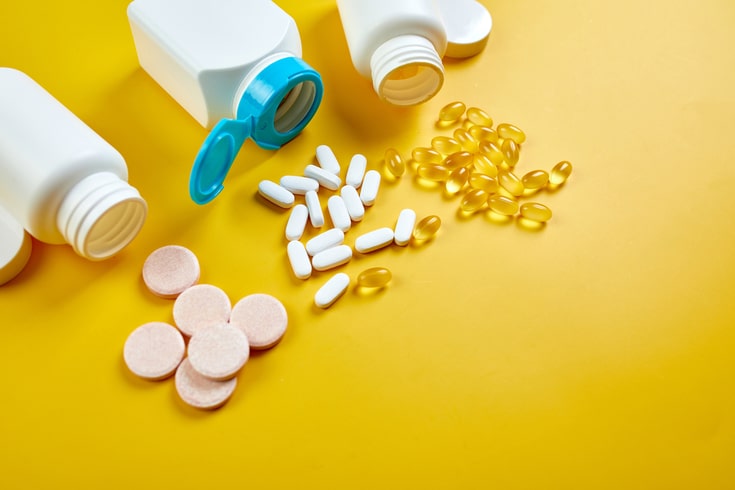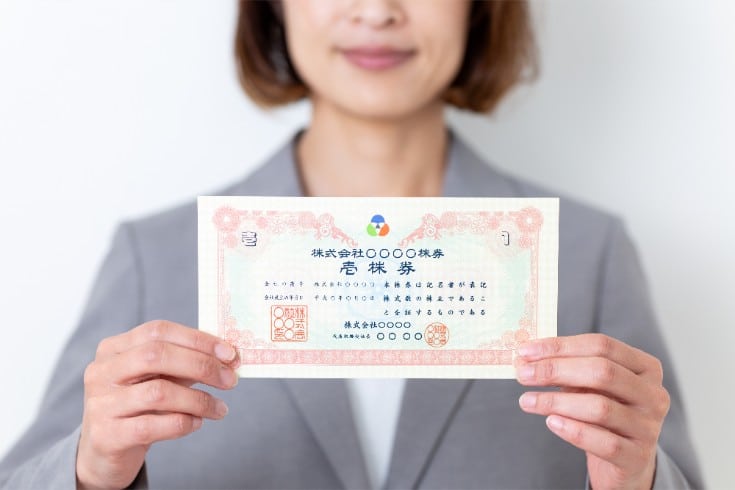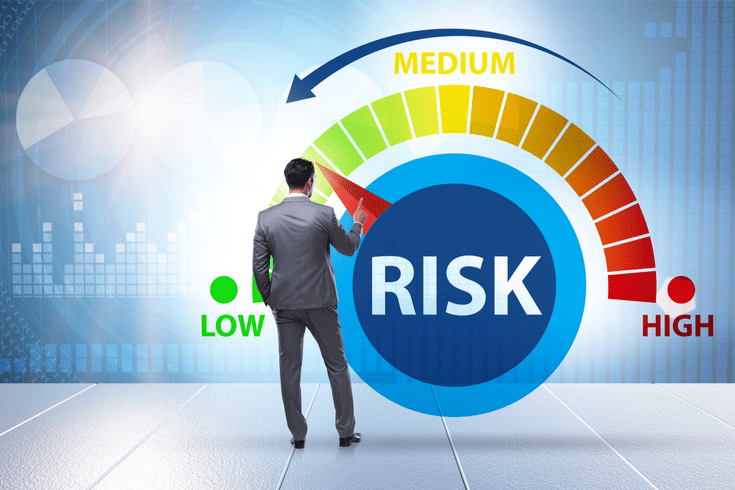Legal Regulations on Advertising Medicines: Explaining the Japanese Pharmaceutical Affairs Law

On June 12, 2014, a part of the Japanese Pharmaceutical Affairs Law (currently known as the Act on Securing Quality, Efficacy and Safety of Products Including Pharmaceuticals and Medical Devices, hereinafter referred to as the “Pharmaceutical and Medical Device Act”) was amended, making it possible to sell pharmaceutical products on the Internet, with the exception of certain drugs.
Consequently, the opportunity to see advertisements for pharmaceutical products on the Internet has increased. However, there are not a few advertisements for pharmaceutical products that have legal issues.
Therefore, this article introduces the legal regulations on advertising pharmaceutical products, targeting business operators who are considering advertising pharmaceutical products.
What is Advertising Regulation under the Japanese Pharmaceutical and Medical Device Act?

The Japanese Pharmaceutical and Medical Device Act (薬機法) regulates the quality, efficacy, and safety of pharmaceuticals and other related products. It also aims to prevent health hazards caused by the use of these products. The regulations include:
- Prohibition of exaggerated advertising (Article 66)
- Restrictions on advertising for specific disease-use pharmaceuticals and regenerative medicine products (Article 67)
- Prohibition of advertising for unapproved pharmaceuticals, medical devices, and regenerative medicine products (Article 68)
If these regulations are violated, the Minister of Health, Labour and Welfare or the prefectural governor may order the cessation of the violation, take necessary measures to prevent the violation from recurring, or take sufficient measures to prevent public health hazards associated with the implementation of these regulations.
Furthermore, if false or exaggerated articles about pharmaceuticals are advertised, described, or disseminated, you might be ordered to pay a surcharge by the Minister of Health, Labour and Welfare.
In the following, we will explain in detail about the advertising regulations under the Japanese Pharmaceutical and Medical Device Act.
What is the Legal Definition of Pharmaceuticals?
Not all drugs fall under the category of “pharmaceuticals”. A substance is considered a “pharmaceutical” under the Japanese Pharmaceutical and Medical Device Act only if it meets the definition stipulated in the Act.
The definition of “pharmaceuticals” is stipulated in Article 2, Paragraph 1 of the Japanese Pharmaceutical and Medical Device Act as follows:
(Definition)
Article 2 This Act refers to the following as “pharmaceuticals”:
1. Items listed in the Japanese Pharmacopoeia
2. Items intended for use in the diagnosis, treatment, or prevention of diseases in humans or animals, and are not machinery or equipment (excluding quasi-drugs and regenerative medicine products).
3. Items intended to affect the structure or function of the human or animal body, and are not machinery or equipment (excluding quasi-drugs, cosmetics, and regenerative medicine products).
Many of you may not have heard of the Japanese Pharmacopoeia.
The Japanese Pharmacopoeia is introduced on the Ministry of Health, Labour and Welfare’s website as follows:
The Japanese Pharmacopoeia is a standard book for pharmaceuticals established by the Minister of Health, Labour and Welfare in accordance with Article 41 of the Act on Securing Quality, Efficacy and Safety of Products Including Pharmaceuticals and Medical Devices, in order to ensure the proper quality of pharmaceuticals.
https://www.mhlw.go.jp/stf/seisakunitsuite/bunya/0000066530.html
Items listed in the Japanese Pharmacopoeia are considered “pharmaceuticals” under Article 2, Paragraph 1, Item 1 of the Act.
Even if an item is not listed in the Japanese Pharmacopoeia, if it is intended for use in the diagnosis, treatment, or prevention of diseases in humans or animals, or if it is intended to affect the structure or function of the human or animal body, and is not machinery or equipment, and does not fall under the quasi-drugs etc. stipulated in the Act, it is considered a “pharmaceutical” under Article 2, Paragraph 1, Items 2 and 3 of the Act.
Regulation of Advertising Expressions for Pharmaceuticals

The regulation of advertising expressions for pharmaceuticals targets exaggerated advertisements, advertisements for specific disease-use pharmaceuticals and regenerative medicine products, and advertisements for pharmaceuticals, medical devices, and regenerative medicine products that have not yet been approved, as previously mentioned.
Definition of “Advertisement”
The term “advertisement” appears in the Japanese Pharmaceutical and Medical Device Act (PMD Act), but there is no provision defining “advertisement” in the PMD Act.
For “advertisement” under the PMD Act, the following three requirements are indicated in the “Applicability of Advertisements for Pharmaceuticals, etc. under the Pharmaceutical Affairs Act”
(Notification of the Director of the Pharmaceutical Safety Bureau of the Ministry of Health and Welfare to the Directors of the Prefectural Health Departments (Bureaus) No. 148, September 29, 1998 (Heisei 10))
- It is clear that the intention is to attract customers (to stimulate the customer’s desire to purchase)
- The product name of the specific pharmaceutical, etc. is clearly stated
- It is in a state that can be recognized by the general public
https://www.mhlw.go.jp/bunya/iyakuhin/koukokukisei/dl/index_d.pdf
If a specific expression act is performed and it meets all of the above three requirements, it is determined to be an “advertisement” under the PMD Act.
Entities Regulated for “Advertisement”
Some people may think that the entities regulated for advertising are only the businesses that sell the targeted pharmaceuticals.
However, the purpose of the PMD Act is, as previously mentioned, to ensure the quality, efficacy, and safety of pharmaceuticals, etc., and to prevent the occurrence and spread of health and hygiene hazards due to the use of pharmaceuticals, etc.
In relation to these purposes, not only the businesses that sell the targeted pharmaceuticals, but also other entities that advertise must be regulated in order to achieve the purpose.
Therefore, under the PMD Act, there is no limitation on the entities regulated for advertising, and even ordinary people and businesses that do not sell pharmaceuticals are subject to regulation under the PMD Act if they advertise pharmaceuticals.
What kind of expressions are subject to regulation?
As previously mentioned, the targets of regulation under the PMD Act are the prohibition of exaggerated advertisements, etc. (Article 66), the restriction of advertisements for specific disease-use pharmaceuticals and regenerative medicine products (Article 67), and the prohibition of advertisements for pharmaceuticals, medical devices, and regenerative medicine products that have not yet been approved (Article 68).
Therefore, we will explain each regulation below.
Prohibition of Exaggerated Advertisements, etc. (Article 66)
The prohibition of exaggerated advertisements, etc. is stipulated in Article 66 of the PMD Act as follows:
(Exaggerated Advertisements, etc.)
Article 66 No person shall advertise, describe, or disseminate false or exaggerated articles regarding the name, manufacturing method, efficacy, effect, or performance of pharmaceuticals, quasi-drugs, cosmetics, medical devices, or regenerative medicine products, whether explicit or implicit.
2 Articles that may be misunderstood as being guaranteed by a physician or other person regarding the efficacy, effect, or performance of pharmaceuticals, quasi-drugs, cosmetics, medical devices, or regenerative medicine products shall be deemed to fall under the preceding paragraph.
3 No person shall use documents or drawings that imply abortion or are obscene in relation to pharmaceuticals, quasi-drugs, cosmetics, medical devices, or regenerative medicine products.
The content of the prohibition of exaggerated advertisements, etc. can be summarized as follows:
- Prohibition of advertising, description, and dissemination of false or exaggerated articles regarding the name, manufacturing method, efficacy/effect, and performance of pharmaceuticals, etc.
- Prohibition of advertising, description, and dissemination of articles that may be misunderstood as being guaranteed by a physician, etc.
- Prohibition of use of documents or drawings implying abortion or obscenity
Restriction on Advertisements for Specific Disease-Use Pharmaceuticals and Regenerative Medicine Products (Article 67)
The restriction on advertisements for specific disease-use pharmaceuticals and regenerative medicine products is stipulated in Article 67 of the PMD Act as follows:
(Restriction on Advertisements for Specific Disease-Use Pharmaceuticals and Regenerative Medicine Products)
Article 67 For pharmaceuticals or regenerative medicine products that are intended to be used for cancer and other special diseases designated by Cabinet Order and that are particularly likely to cause harm unless used under the guidance of a physician or dentist, the Minister of Health, Labour and Welfare may designate the pharmaceuticals or regenerative medicine products by Ministerial Ordinance and may take necessary measures to ensure the proper use of the pharmaceuticals or regenerative medicine products, such as restricting advertising methods targeting the general public other than medical professionals.
2 The Minister of Health, Labour and Welfare shall, before requesting a Cabinet decision on the Cabinet Order designating the special diseases referred to in the preceding paragraph, hear the opinions of the Pharmaceutical Affairs and Food Sanitation Council in advance. However, this shall not apply to matters deemed minor by the Pharmaceutical Affairs and Food Sanitation Council.
The restriction on advertisements for specific disease-use pharmaceuticals and regenerative medicine products applies to advertisements targeting the general public other than medical professionals for pharmaceuticals for cancer, sarcoma, and leukemia, which require high professionalism in their use.
Therefore, if it targets medical professionals, it is not subject to regulation.
Prohibition of Advertisements for Unapproved Pharmaceuticals, Medical Devices, and Regenerative Medicine Products (Article 68)
The prohibition of advertisements for unapproved pharmaceuticals, medical devices, and regenerative medicine products is stipulated in Article 68 of the PMD Act as follows:
(Prohibition of Advertisements for Unapproved Pharmaceuticals, Medical Devices, and Regenerative Medicine Products)
Article 68 No person shall advertise the name, manufacturing method, efficacy, effect, or performance of a pharmaceutical, medical device, or regenerative medicine product prescribed in Article 14, paragraph 1, Article 23-2-5, paragraph 1, or Article 23-2-23, paragraph 1, which has not yet received approval or certification under Article 14, paragraph 1, Article 19-2, paragraph 1, Article 23-2-5, paragraph 1, Article 23-2-17, paragraph 1, Article 23-2-25, paragraph 1, or Article 23-2-37, paragraph 1, or certification under Article 23-2-23, paragraph 1.
The prohibition of advertisements for unapproved pharmaceuticals, medical devices, and regenerative medicine products applies to advertisements regarding the name, manufacturing method, efficacy, effect, or performance of pharmaceuticals or medical devices that have not yet been approved (or certified).
Summary: Consulting Lawyers for Legal Regulations on Advertising Medicine under Japanese Pharmaceutical Affairs Law

In conclusion, we have introduced the legal regulations concerning the advertisement of pharmaceutical products, targeting business operators who are considering advertising these products.
Without proper research, there is a risk of violating the law when advertising pharmaceutical products.
Particularly, there are many cases that may infringe upon the prohibition of exaggerated advertising, so business operators who are considering advertising pharmaceutical products need to be cautious.
Whether or not an advertisement violates the regulations on pharmaceutical advertising depends on the content of the advertisement being considered. Therefore, it is necessary to make a specific judgment. We recommend that business operators who are considering advertising pharmaceutical products consult with a lawyer who has specialized knowledge in this area.
Introduction to Our Firm’s Measures
Monolith Law Firm is a legal office with high expertise in both IT, particularly the Internet, and law. In recent years, violations of the Japanese Premiums and Representations Act, such as deceptive advertising on the internet, have become a significant issue, and the need for legal checks is increasingly growing. Our firm analyzes the legal risks associated with businesses that have already started or are about to start, based on various legal regulations, and strives to legalize them as much as possible without stopping the business.
Category: General Corporate





















